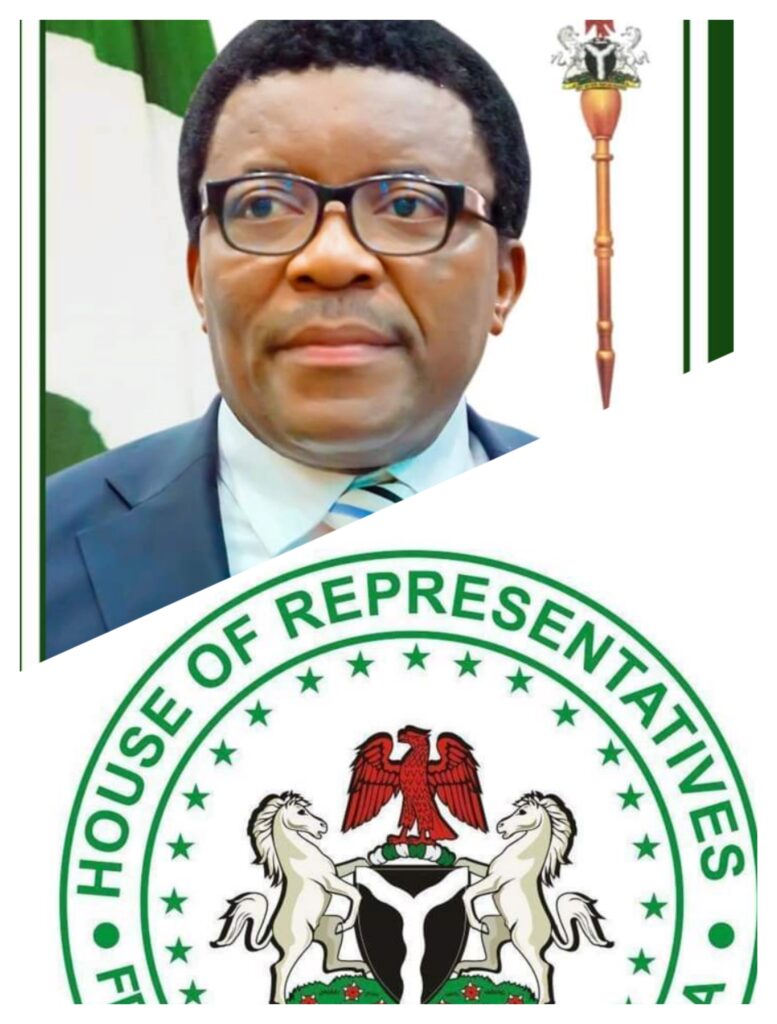
The Federal Government, through various schemes and interventions in the last eight (8) years have spent over Two Trillion Naira in funding agricultural interventions with the view of making food available for millions of Nigerians,
The House of Representatives on Tuesday on resumption from its 3 weeks Sallah break passed a resolution to investigate alleged embezzlement of interventions and agricultural funding by Ministries and Departments, Agencies, Schemes and Programmes of the Federal Government outside the Federal Ministry of Agriculture and Food Security.
This was sequel to a motion brought by Rep. John Chike Okafor (APC, Imo) titled “Alleged Mismanagement Of Government Agricultural Initiative And Funding By Departments, Agencies And Government Programs Outside The Federal Ministry Of Agriculture And Food Security”
The House frowned at the growing food scarcity and malnutrition in Nigeria and the alleged mismanagement of agricultural funds intended for agricultural development in the country.
The lawmaker in his presentation pointed out that “the Federal Government, through various schemes and interventions in the last eight (8) years have spent over Two Trillion Naira in funding agricultural interventions with the view of making food available for millions of Nigerians, but due to the alleged mismanagement, misapplication of funds and abuse of the programs, Nigeria is still experiencing food scarcity and malnutrition.
He also said “the reports and allegations of abuse, mismanagement, and misapplication of government intervention funds earmarked for agricultural development and food security initiative in Nigeria through the:
Central Bank of Nigeria (CBN) through the Anchor Borrowers Program (ABP) disbursed about ₦1.12 trillion to 4.67 million farmers involved in either maize, rice or wheat farming through 563 (Five Hundred and Sixty Three) anchors;
The Nigeria Incentive-Based Risk Sharing System for Agricultural Lending (NIRSAL) disbursed ₦215,066,980,274.52 (Two Hundred and Fifteen Billion, Sixty Six Million, Nine Hundred and Eighty Thousand, Two Hundred and Seventy Four Naira, Fifty Two Kobo) so far to facilitate agriculture and agrobusinesses.
“Bank of Industry (BOI) disbursed ₦3 billion Naira to 22,120 (Twenty Two thousand, One Hundred and Twenty) smallholder farmers through the Agriculture Value chain financing (AVCF) Programme. Additionally, the bank also funded 49 (Forty Nine) agro and food processing businesses with N 59.4 billion in loans;
In 2023, the Federal Government of Nigeria unveiled a 5 Billion Naira loan facility to the Bank of Agriculture (BOA) for Livestock farmers across the country.
“National Agricultural Development Fund in March of 2024 inaugurated a ₦1.6 billion Recovery Fund for the Ginger Blight Epidemics Central Taskforce (GBECT) for the control of Blight disease in Ginger, among other interventions.”
Furthermore, he stated that the funds advanced to end users of the various Federal Government interventions have also been allegedly misused, misapplied and channeled to non-farming and non-agricultural purposes, hence the current acute scarcity of food.
Additionally, he explained that the agricultural sector plays a crucial role in ensuring food security, improving nutrition, and supporting the livelihoods of millions of Nigerians, and any abuse of the programs and schemes of the Government drastically affects millions of innocent citizens.
Meanwhile, passing the motion the House through its presiding officer, Deputy Speaker Benjamin Kalu mandated the House Committee on Nutrition and Food Security and the Committees on Agricultural Production and Services; Agricultural Colleges and Institutions and Finance to conduct a comprehensive investigation into the alleged misuse of Government interventions and agricultural funding by Departments, Agencies, Schemes and Programmes of the Federal Government outside the Federal Ministry of Agriculture and Food Security and report back to the House within four (4) legislative weeks for further legislative actions.


